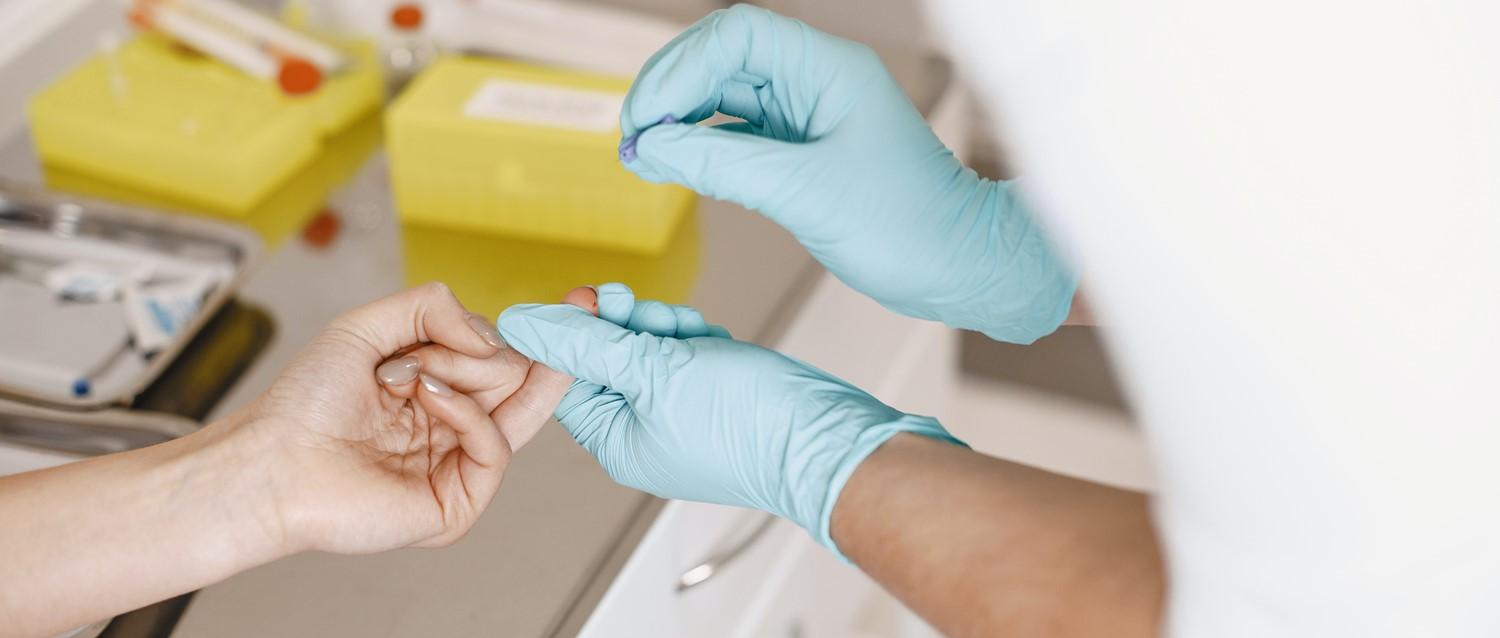
Schwangerschaftsdiabetes - wie sind die Aussichten?
Peer reviewed by Dr Krishna Vakharia, MRCGPLast updated by Gillian HarveyLast updated 12 Aug 2022
- HerunterladenHerunterladen
- Teilen Sie
Teilen Sie
Gestationsdiabetes ist eine Form von Diabetes, die sich während der Schwangerschaft entwickelt. Wenn Sie sich demnächst auf diese Krankheit testen lassen oder kürzlich einen positiven Test erhalten haben, ist es nur natürlich, dass Sie sich Sorgen machen. Wir befassen uns mit der Krankheit, den verfügbaren Behandlungen und der Langzeitprognose für diejenigen, bei denen sie diagnostiziert wurde.
In diesem Artikel:
Lesen Sie unten weiter
How common is gestational diabetes?
Gestational diabetes affects about 4-5% of pregnancies in the UK, according to Diabetes UK. All pregnant women are screened for risk factors for gestational diabetes at 8-12 weeks of gestation when they are booked in for their pregnancy. If they have more than one risk factor, they are offered an oral glucose tolerance test around 24-28 weeks of gestation. They will be offered a test earlier if they have previously had gestational diabetes and a further one at 24-28 weeks if that first test is normal.
The risk factors of gestational diabetes
Your body mass index (BMI) is above 30.
You previously had a baby who weighed 4.5 kg (10 lb) or more at birth.
You had gestational diabetes in a previous pregnancy.
One of your parents or siblings has diabetes.
You are of South Asian, Black, African-Caribbean, or Middle Eastern origin (even if you were born in the UK).
"The test usually involves a series of blood tests. The first is after a 12-hour (overnight) fast, after which a glucose drink is taken. Blood levels are then measured after two hours to see how your body manages that sugar load," explains Dr Sophie Relph, spokesperson for the Royal College of Obstetricians and Gynaecologists.
What causes gestational diabetes?
As type 2 diabetes can be triggered by lifestyle factors, it's natural to wonder whether gestational diabetes could have been caused by eating too much in pregnancy. However, gestational diabetes is not thought to be related to excess food or drink intake during pregnancy, although gestational diabetes may be more common in those who are overweight when they become pregnant.
"If you usually have a diet that is high in sugar and fat or are overweight, then this might increase your risk of having diabetes in pregnancy," says Relph. "However, gestational diabetes is not something that can be triggered by eating too much during pregnancy. That being said, if you are able to lose excess weight before becoming pregnant it will reduce your chance of developing the condition."
Patienten wählen aus für Komplikationen bei der Schwangerschaft

Schwangerschaft
Wann Sie sich während der Schwangerschaft Sorgen machen sollten und wann nicht
Eine Schwangerschaft wird oft als eine Zeit des Bauchklopfens, der Kinderzimmerdekoration und der Vorfreude gesehen, kann aber auch mit Sorgen verbunden sein. Die meisten Frauen, insbesondere in der ersten Schwangerschaft, erleben unerwartete Symptome und wissen oft nicht, wann sie Hilfe suchen sollen.
von Gillian Harvey

Schwangerschaft
Verdauungsstörungen und saurer Reflux in der Schwangerschaft
Verdauungsbeschwerden (Dyspepsie) treten bei etwa der Hälfte aller schwangeren Frauen auf. Sie sind in der Regel auf einen Säurerückfluss aus dem Magen in die Speiseröhre zurückzuführen.
von Dr. Caroline Wiggins, MRCGP
Lesen Sie unten weiter
How is gestational diabetes treated?
Gestational diabetes is often controlled through changes to the diet, to keep blood sugars within a healthy range.
"We always try to control it with diet in the first instance," says Relph. "If you are diagnosed, you will usually be offered a meeting with a specialist midwife and dietician who will advise you. We usually ask women to measure their blood sugar at home over a two-week period to see what happens."
If diet alone fails to keep blood sugar levels within healthy limits, there are additional treatment options for gestational diabetes.
"Metformin tablets can be used to sensitise the body to its own natural insulin, which helps it to store glucose and prevents high sugar levels in the blood," says Relph. "For many this treatment alone will be sufficient, although in some, additional treatment with injections of insulin may be required."
What are the risks of having gestational diabetes?
The main risk of gestational diabetes occurs when the condition isn't controlled effectively, meaning blood sugars remain high.
"If blood sugars are frequently too high, the baby will receive too much sugar. This might cause them to grow too large - unhealthily so," says Relph.
Lesen Sie unten weiter
How does gestational diabetes affect the baby?
"Increased fetal size leads to an increase in the chances of a woman requiring a c-section, or the risk of shoulder dystocia (where the shoulder gets stuck coming down the birth canal) during a natural birth. This is due to the fact that the baby's head will remain a normal size, but they may carry a lot of weight around their torso."
"While shoulder dystocia can usually be resolved quickly, sometimes babies may get stuck, causing fracture or even brain injury." There's also a raised risk of stillbirth for mothers who have gestational diabetes, but this is again usually due to uncontrolled diabetes and is very rare. Other risks include a sugar drop for the baby once born, which may need to be monitored and rectified.
How can I reduce the risk of complications from gestational diabetes?
By following dietary guidelines and if needed, taking any medications that have been prescribed, most women with gestational diabetes should be able to control their blood sugar, avoiding dangerous highs and further complications.
"If sugar is controlled, the risks are significantly reduced," agrees Relph. "If you have been diagnosed with gestational diabetes and are struggling to control your sugar levels, it's important to seek urgent advice from a midwife or doctor."
Gestational diabetes - longer-term
For most women, gestational diabetes resolves after the baby has been born, with blood sugars returning to pre-pregnancy levels. However, those who have developed gestational diabetes during pregnancy may find themselves more susceptible to diabetes in later life or in future pregnancies and should continue to monitor their health.
"Normally the majority of women find their sugars go back to normal almost immediately after the baby is born," says Relph. "However, we usually recommend a test about three months after the birth, with their GP to assess whether or not they have the early signs of diabetes, such as glucose intolerance, or whether they have developed the condition.
"Having gestational diabetes in pregnancy reveals the fact that you have a predisposition to becoming diabetic. You should repeat the test on an annual basis for life," she recommends.
Although a diagnosis of gestational diabetes may feel alarming, controlling your blood sugars carefully and following medical advice will significantly reduce any associated risks.
Artikel Geschichte
Die Informationen auf dieser Seite wurden von qualifizierten Klinikern geprüft.
12 Aug 2022 | Latest version
12 Aug 2022 | Originally published

Fragen, teilen, verbinden.
Stöbern Sie in Diskussionen, stellen Sie Fragen, und tauschen Sie Erfahrungen zu Hunderten von Gesundheitsthemen aus.

Fühlen Sie sich unwohl?
Beurteilen Sie Ihre Symptome online und kostenlos